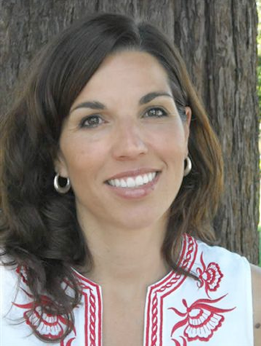Events

- This event has passed.
Rebecca Hester: "Bodies as=of knowledge: The ethics and politics of biometrics in health care"
May 13, 2014 @ 12:00 pm - 1:30 pm | Stevenson Fireside Lounge
 What are the proposed uses of biometrics in health care and the ethics and politics of body data in the digital age? As security and surveillance become the order of the day, biometric technologies have become a ubiquitous and naturalized part of most aspects of everyday life. Operating from the premise that “bodies don’t lie,” biometrics promises increased safety, security, accuracy, and reliability in identity recognition and verification. These promises are especially appealing in the health care industry where the verification of patient and provider identities is a necessary security feature for protecting patient data. Despite their promises, however, the fact that biometrics facilitates the coding, analysis, and judgment of embodied information in new, more complex, and more far-reaching ways than were previously possible in health care opens up a host of ethical and political issues for patients, providers, and populations. Long-standing virtues in medicine such as privacy, confidentiality, justice and beneficence are challenged as numerous and often unknown institutions and individuals beyond the clinic can and will have access to this embodied information for security, surveillance, and marketing purposes.
What are the proposed uses of biometrics in health care and the ethics and politics of body data in the digital age? As security and surveillance become the order of the day, biometric technologies have become a ubiquitous and naturalized part of most aspects of everyday life. Operating from the premise that “bodies don’t lie,” biometrics promises increased safety, security, accuracy, and reliability in identity recognition and verification. These promises are especially appealing in the health care industry where the verification of patient and provider identities is a necessary security feature for protecting patient data. Despite their promises, however, the fact that biometrics facilitates the coding, analysis, and judgment of embodied information in new, more complex, and more far-reaching ways than were previously possible in health care opens up a host of ethical and political issues for patients, providers, and populations. Long-standing virtues in medicine such as privacy, confidentiality, justice and beneficence are challenged as numerous and often unknown institutions and individuals beyond the clinic can and will have access to this embodied information for security, surveillance, and marketing purposes.
Rebecca J. Hester is assistant professor of social medicine in the Institute for the Medical Humanities at the University of Texas Medical Branch. She holds a Ph.D. in Politics with an emphasis in Latin American and Latino Studies from UCSC. Her research focuses on the politics of the body as they are manifested at and through the intersections of immigration, health, and security. She is co-author, with Ronnie Lipschutz, of “We are the Borg! Human Assimilation into Cellular Society,” pp. 366-407, in: M.G. Michael and Katina Michael (eds.), Uberveillance and the Social Implications of Microchip Implants: Emerging Technologies (Hershey, Penna.: IGI Global, 2014).
These talks are co-sponsored by CGIRS, College Eight, the Politics Department, the Institute for Humanities Research, the Institute of the Arts & Sciences, and the Science and Justice Research Center. The BIOS (Bodies Imag(in)ed to be Obstacles to Security) Research Cluster is a new project of the Center for Global, International and Regional Studies, focused on the surveillance, management, interrogation, discipline and intervention of human and other bodies in the digital age. If you are interested in joining the cluster, please contact Ronnie Lipschutz at rlipsch@ucsc.edu.
